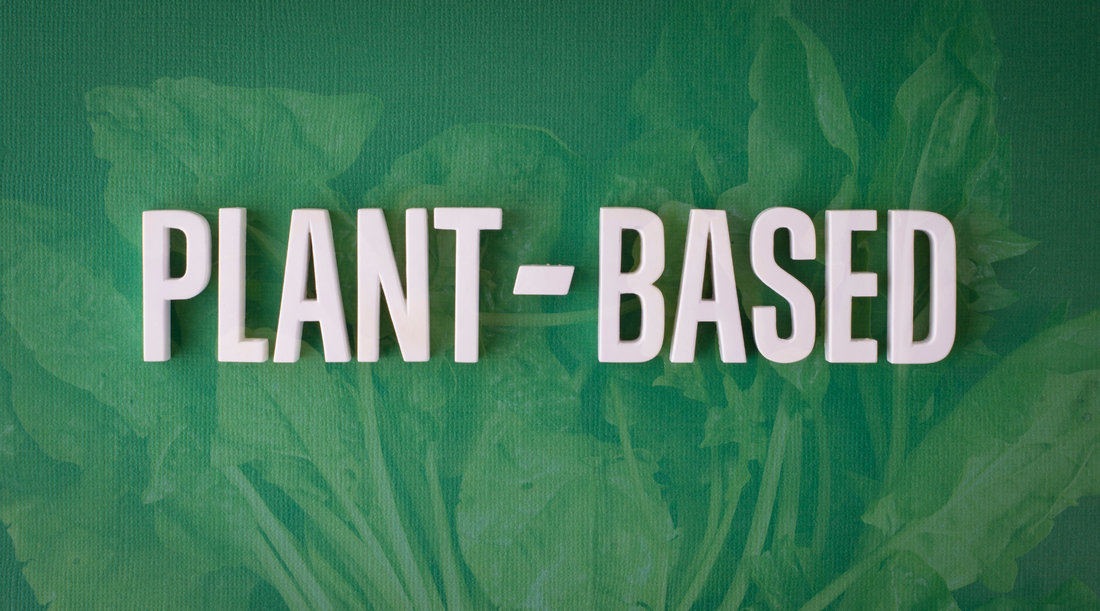In recent times, the culinary sphere has witnessed a transformative shift towards healthier and more compassionate choices. This transformation has ushered us into the world of plant-based and vegan baking. Here, cookies, a universally beloved treat, have evolved into their wholesome and ethical counterparts. Let's dig deeper and understand the differences between plant-based and vegan cookies.
Understanding Plant-Based and Vegan Diets
Before we dig into the details of these cookies, it's important to understand the different diets that influence what goes into them. A plant-based diet focuses primarily on consuming whole, plant-derived foods, minimizing processed items, and avoiding animal products. On the other hand, a vegan diet strictly abstains from any animal products and by-products, promoting a lifestyle that seeks to avoid the exploitation of animals in any form.
The global community has been witnessing a growing popularity and awareness of plant-based and vegan lifestyles. These lifestyle choices are not just dietary preferences but also resonate deeply with personal ethics, health consciousness, and environmental sustainability.
What Are Plant-Based and Vegan Cookies?
Plant-based cookies focus on incorporating whole, unprocessed, or minimally processed plant ingredients. These might include whole grains, natural sweeteners such as maple syrup or agave nectar replace traditional fats and sugars, and nut butters, which provide a rich flavor and texture while adhering to a health-conscious approach.
Vegan cookies adhere to the principles of veganism, avoiding ingredients derived from animals. This entails utilizing a range of replacements for traditional ingredients.This includes using flaxseeds or chia seeds as binding agents instead of eggs, and plant-based milks and oils instead of dairy products. These substitutions ensure that the cookies adhere to vegan principles, avoiding animal exploitation.
Plant-Based and Vegan Cookies: Which Choice Is Right For You?
Benefit Considerations: Health, Sustainability, & Environmental
Diving into the world of plant-based and vegan cookies doesn't just satisfy your sweet tooth, it also comes with a host of nutritional benefits that make indulging in a cookie (or two) a healthier choice. Let's dissect the plethora of benefits that these cookies bring to the table:
Reduced Saturated Fats and Cholesterol
One of the standout benefits of plant-based and vegan cookies is the significant reduction in saturated fats and cholesterol. Traditional cookie recipes often incorporate butter and eggs, which contribute to higher levels of saturated fats and cholesterol. In contrast, plant-based and vegan cookies utilize healthier fat sources like nut butters and plant oils, which not only lower the saturated fat content but also contain beneficial nutrients.
Allergen-Friendly Options
With an increasing number of people identifying various food allergies, the plant-based and vegan cookie sector offers solace by reducing the potential allergens commonly found in standard cookie recipes. By omitting dairy, eggs, and sometimes even gluten, these cookies provide a safer option for those with dietary restrictions or allergies, without compromising on taste.
Rich in Vitamins, Minerals, and Fibers
Plant-based and vegan cookies are often crafted with nutrient-dense ingredients that are naturally high in vitamins, minerals, and fibers. Ingredients like oats, nuts, seeds, and various fruits bring a burst of essential nutrients to each bite. Not only do these ingredients enhance the flavor profile of the cookies, but they also provide substantial nourishment, making them a healthier alternative to conventional cookies.
Environmental Advantages
Switching to plant-based and vegan cookies isn't just a healthier choice for you, but it's also a kind gesture towards our planet. The production of plant-based ingredients generally requires less water, land, and other resources, compared to the production of animal-based ingredients. Hence, by choosing these cookies, you are indirectly contributing to a more sustainable and environmentally-friendly food system.
Baking Techniques and Challenges
Transitioning from traditional cookie recipes to plant-based and vegan alternatives isn't merely about swapping ingredients; it demands an alteration in baking techniques and a readiness to surmount the associated challenges. The goals are to retain delightful flavors, achieve desirable textures, and ensure the cookies are bound well. Let's delve into these aspects in more detail:
Adaptations in Baking Techniques for Plant-Based Cookies
When embarking on the journey of baking plant-based cookies, it's essential to understand that alterations in traditional techniques are often necessary. This change is largely due to the omission of common ingredients like dairy products and eggs, which play crucial roles in adding moisture and structure to the cookies.
Achieving the ideal moisture and texture thus requires creativity and an open mind to experiment with a variety of plant-based ingredients. For instance, nut butters and avocado can serve as excellent substitutes for butter, imparting a rich, creamy texture to the cookies. Similarly, incorporating ingredients like applesauce or mashed bananas can help retain moisture, making the cookies soft and chewy.
Overcoming Challenges in Vegan Baking
Vegan baking brings its own set of distinct challenges, primarily when it comes to binding, leavening, and emulsifying — functions that eggs usually perform in traditional recipes. Nonetheless, the world of vegan baking has seen remarkable innovations to overcome these hurdles.
To replace eggs and still achieve firm binding, many have turned to options like flaxseed or chia seed "eggs", which not only hold the ingredients together effectively but also enrich the cookies with a healthy dose of omega-3 fatty acids. In terms of leavening, to give the cookies a light and fluffy texture, bakers have the option to use a mix of baking soda and an acid (such as vinegar or lemon juice) which helps in giving the cookies a nice rise.
Regarding emulsification, which is vital for a smooth batter, vegan baking embraces ingredients like soy lecithin along with other plant-based emulsifiers, which have shown effectiveness in maintaining a consistent texture and preventing the separation of fats and liquids in the mix.
Holiday Gifting: Plant-Based and Vegan Cookies as Thoughtful Presents
One exciting aspect of plant-based and vegan cookies is their versatility, making them ideal gifts for holidays and special occasions. For those looking to offer something both delicious and thoughtful, these cookies provide a way to cater to various dietary preferences while delivering a gift that aligns with health and environmental values.
Why They Make Great Holiday Gifts:
- Diet-Friendly: Plant-based and vegan cookies accommodate a wide range of diets, ensuring that your gift is suitable for most recipients.
- Creative Flavors: These cookies often incorporate unique flavors and ingredients, such as dark chocolate, coconut, nuts, and spices, making them a more exciting gift.
- Eco-Friendly Packaging: Many plant-based and vegan bakeries emphasize eco-friendly packaging, so your gift not only tastes great but also aligns with a sustainable lifestyle.
Whether it’s a festive box of vegan chocolate chip cookies or plant-based gingerbread cookies, these treats are perfect for showing your loved ones that you care about their health and the planet.
Conclusion: A Wholesome Delight in Every Bite
Diving into plant-based and vegan cookies opens up a universe of tasty and nourishing treats. With a vast array of ingredients, these cookies underscore values of well-being, and eco-friendliness. As we journey through this enticing world of baking, we invite all to discover and relish the various tastes, feels, and advantages that come with plant-based and vegan treats.

